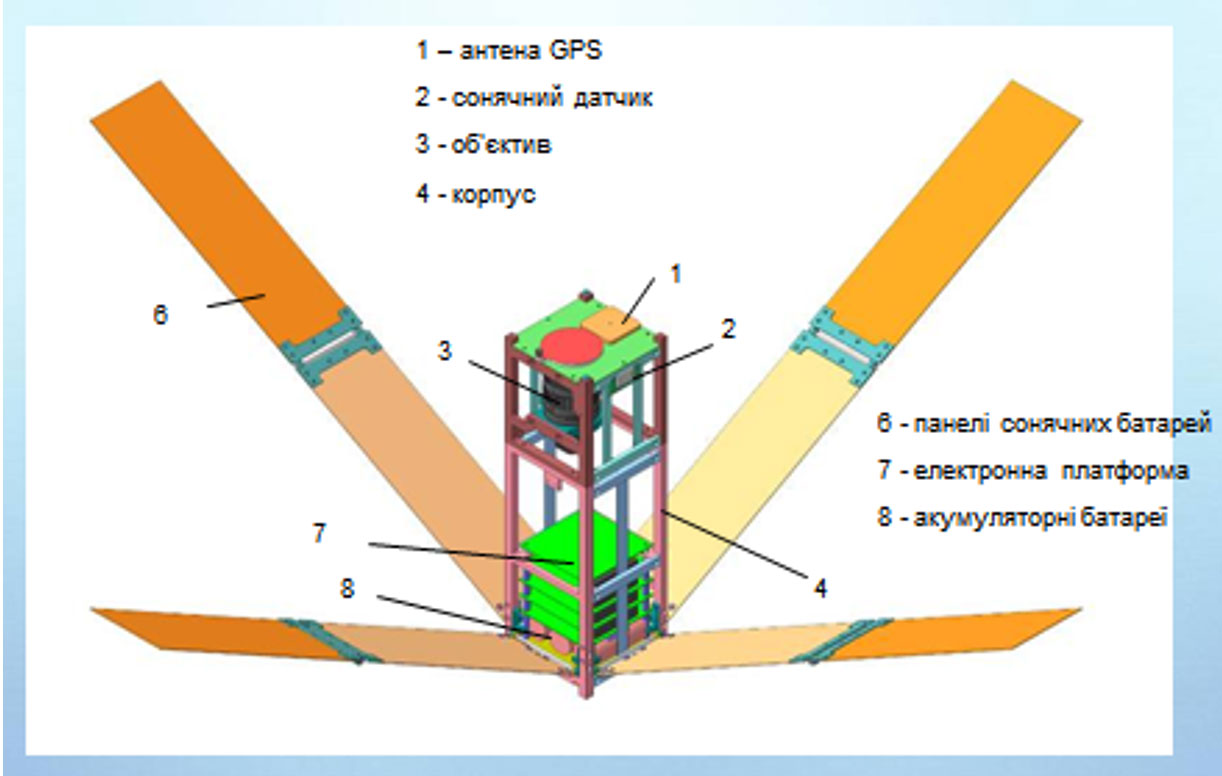Development and research of universal energy saving subsystem power supply to the optoelectronic scanner and precision GPS / GLONASS space receiver
The work is aimed at creating a universal power supply subsystem for nanosatellites, which will be able to provide high-quality power to space devices - precision GPS \ GLONASS receiver and optoelectronic scanner (OEC) as a payload of GraviSat and PolyITAN-3.
The main scientific problem of the project is the optimization of circuit and design solutions of the nanosatellite power supply subsystem, low level of electromagnetic interference, high payload power (up to 10 W in 3U CubSats format) and openin arsenide-gallium solar panels. It is also necessary to automatically generate power management cyclograms with a difference in the operating time of the payload and other emergency systems, and a more uniform time distribution of loads. This will allow the use of energy more efficiently, as well as significantly reduce the level of interference in the operation of sensitive measuring systems, allowing them to work more efficiently and accurately, as well as increase the efficiency of energy use by the satellite as a whole.
The subject of research and development is
- creation of means and methods of reduction of electromagnetic interference of payload of nanosatellites, optimization of cyclograms of control of devices and systems of nanosatellites PolyITAN-3 and GraviSat for maximization of their energy reserve or residual operating time.,
- circuit and design solutions for efficient power supply of spacecraft under the influence of space factors.
The aim of the project is to develop methods and ways of forming cyclograms of power supply converters control, for efficient energy use by electronic platform for PolyITAN-3 and GraviSat nanosatellites with optoelectronic camera-scanner C5180 and GPS / GLONASS CH-4706M receiver, modified for space use; reducing the level of electromagnetic interference and increasing the time of emergency operation in orbit, fabrication and experimental study of parameters (currents, voltages, their pulsations, etc.) of the improved power supply subsystem for the experimental model to PolyITAN-3 and GraviSat nanosatellites in MES projects.
The developed power supply system provides the following:
- operation of the primary energy source (solar batteries) for the load and charge of the battery (typical for illuminated areas of the orbit) with the selection of maximum power;
- operation of the battery for load when the primary energy source is not working (typical for the shadow areas of the orbit);
- joint work of the primary energy source and the battery on the load (typical for illuminated areas of the orbit in case of exceeding the power consumption of the primary source);
- power supply of loads with necessary characteristics;
- remote control of channels;
- constant telemonitoring of load channels.
- power supply of the C5180 optoelectronic camera-scanner and GPS / GLONASS SN-4706M receiver, modified for space use, with the necessary characteristics for them;
- 6 load channels with the possibility of hardware setting of the output voltage in the range of 1.3-12V;
- low level of own electromagnetic interference;
- providing thermal regimes of elements of emergency power supply systems in the conditions of space influence;
- on / off functions of the onboard equipment and diagnostics of all subsystems and payload at the initial period of the satellite's orbital flight;
Also conducted:
- production of stands for simulation of power supply systems for testing and adjustment of emergency subsystems and their software;
- conducting a full cycle of research and testing; autonomous and complex ground tests of the experimental sample of PEZH and NS with opto-electronic camera-scanner C5180 and GPS / GLONASS receiver SN-4706M, modified for space use, in a thermovacuum chamber under the influence of space factors.

| Attachment | Size |
|---|---|
| 362.07 KB |




